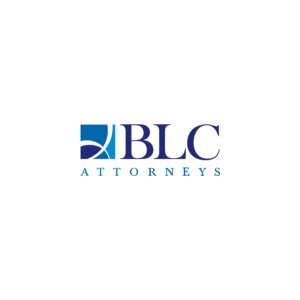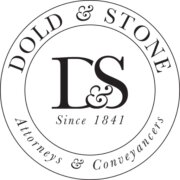Best Sanctions & Export Controls Lawyers in South Africa
Share your needs with us, get contacted by law firms.
Free. Takes 2 min.
Or refine your search by selecting a city:
List of the best lawyers in South Africa
About Sanctions & Export Controls Law in South Africa
Sanctions and export controls are legal measures used by governments to regulate, restrict, or prohibit the movement of certain goods, technologies, and services across borders for reasons such as national security, foreign policy, and compliance with international obligations. In South Africa, these laws serve to align the country with global efforts to prevent the proliferation of weapons, protect human rights, stop terrorism, and ensure trade security. Oversight of these regulations involves multiple government agencies, with South Africa regularly updating its legislation to reflect commitments to the United Nations and other international agreements.
Why You May Need a Lawyer
Seeking legal advice in sanctions and export controls is crucial in a number of scenarios. Individuals and businesses may encounter situations such as:
- Determining if their products or services are subject to export restrictions.
- Managing compliance with complex local and international sanctions regimes.
- Handling suspected breaches of export control laws or sanctions regulations.
- Applying for export licenses or authorizations.
- Responding to governmental inquiries or investigations.
- Understanding the implications of importing goods from sanctioned countries.
- Training staff or developing compliance programs to avoid legal penalties.
Local Laws Overview
South Africa's sanctions and export controls have a statutory foundation established by several key pieces of legislation and regulations:
- The National Conventional Arms Control Act (NCACA): Regulates the possession, export, import, and transfer of conventional arms. The National Conventional Arms Control Committee (NCACC) oversees arms export policies and ensures compliance with international obligations.
- The Non-Proliferation of Weapons of Mass Destruction Act: Implements controls to prevent the proliferation of chemical, biological, and nuclear weapons, in line with United Nations Security Council resolutions and treaties.
- Customs and Excise Act: South African Revenue Service (SARS) monitors exports and enforces customs regulations, including embargoes and sanctions enforcement.
- International Trade Administration Act: The International Trade Administration Commission (ITAC) controls the import and export of designated goods via licensing and permit systems.
- International Sanctions: South Africa implements United Nations Security Council sanctions as required, including asset freezes, trade embargoes, and travel bans.
Frequently Asked Questions
What are economic sanctions?
Economic sanctions are governmental restrictions imposed on specific countries, entities, or individuals to achieve foreign policy or national security objectives by limiting access to parts of the global economy.
What is an export control?
Export control refers to a legal regime that regulates the movement of certain goods, technology, and software across borders to prevent misuse or threats to security and international peace.
Who regulates export controls in South Africa?
The NCACC and ITAC are the primary bodies, with SARS and the Department of Trade, Industry and Competition also participating, depending on the goods or services involved.
How do I know if my goods are subject to export controls?
If your goods or technology are on any controlled goods lists or are considered dual-use items, they may need a permit from ITAC or NCACC. Legal advice or consulting these authorities is advised.
Do South African sanctions apply to all countries the same way?
No. South African sanctions mainly follow United Nations Security Council resolutions. The scope of restrictions may vary depending on the specific country and the nature of the sanctions.
What penalties exist for violating sanctions or export control laws?
Penalties can include criminal charges, large fines, imprisonment, revocation of licenses, and reputational damage to your business.
How can I apply for an export permit or license?
You can apply to ITAC or, for arms and military goods, to the NCACC. Applications often require detailed documentation and vetting procedures.
Does South Africa enforce US or EU sanctions?
South Africa primarily enforces its own and UN-imposed sanctions, but businesses should be aware that dealing with international partners may raise issues under foreign laws, especially for global banking and trade.
What is a dual-use good?
Dual-use goods are items, technology, or software that can be used for both civilian and military applications and are often strictly controlled under export regimes.
Can I get help if I am investigated for sanctions breaches?
Yes. It is critical to seek legal assistance immediately if you are investigated, as early legal advice can protect your rights and assist in communications with authorities.
Additional Resources
If you require further information or guidance, the following organizations and government departments are valuable resources:
- National Conventional Arms Control Committee (NCACC)
- International Trade Administration Commission (ITAC)
- Department of Trade, Industry and Competition
- South African Revenue Service (SARS) - Customs Division
- Department of International Relations and Cooperation
- South African Non-Proliferation Secretariat
- United Nations Security Council Resolutions Portal
- Legal Aid South Africa (for general legal support)
Next Steps
If you believe your company, products, or intended transactions fall within the scope of South African sanctions or export controls, it is important to act cautiously:
- Identify and assess whether your goods, services, or counterparts are on any restricted or controlled lists.
- Consult with a South African attorney who specializes in export controls and sanctions law for a compliance review.
- Gather necessary documentation and keep detailed records of all transactions.
- If you must apply for permits or authorizations, do so through the appropriate agency and allow for sufficient processing time.
- If you are facing penalties or investigations, contact a lawyer immediately for representation and advice.
- Implement compliance training and policies in your business to help mitigate future risks.
Lawzana helps you find the best lawyers and law firms in South Africa through a curated and pre-screened list of qualified legal professionals. Our platform offers rankings and detailed profiles of attorneys and law firms, allowing you to compare based on practice areas, including Sanctions & Export Controls, experience, and client feedback.
Each profile includes a description of the firm's areas of practice, client reviews, team members and partners, year of establishment, spoken languages, office locations, contact information, social media presence, and any published articles or resources. Most firms on our platform speak English and are experienced in both local and international legal matters.
Get a quote from top-rated law firms in South Africa — quickly, securely, and without unnecessary hassle.
Disclaimer:
The information provided on this page is for general informational purposes only and does not constitute legal advice. While we strive to ensure the accuracy and relevance of the content, legal information may change over time, and interpretations of the law can vary. You should always consult with a qualified legal professional for advice specific to your situation.
We disclaim all liability for actions taken or not taken based on the content of this page. If you believe any information is incorrect or outdated, please contact us, and we will review and update it where appropriate.
Browse sanctions & export controls law firms by city in South Africa
Refine your search by selecting a city.
















